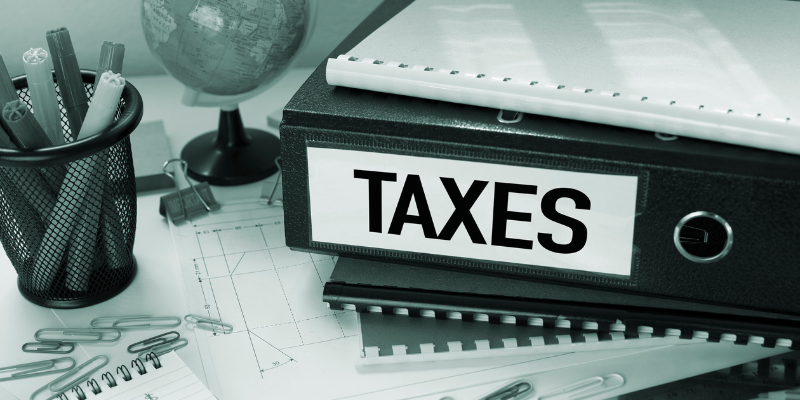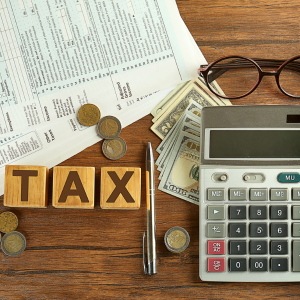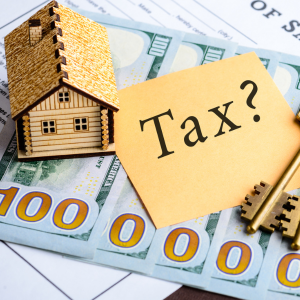
Understanding Capital Gains Tax When Selling a Home in Los Angeles
If people in Los Angeles want to make the most money when they sell their home, they need to know about capital gains tax. In California, and especially in Los Angeles, real estate taxes can have a big impact on the amount of money that is left over after selling a house.

Capital gains tax is charged on the money you make when you sell your home. This tax is found by taking the final sale price and subtracting the original buy price, plus any improvements or renovations made to the property. Homeowners are able to get certain exemptions. For example, if you lived in your main home for at least two of the five years before selling it, you can exclude up to $250,000 of the gain if you are single and up to $500,000 if you are married and reporting jointly.
However, properties that are kept as investments or rentals are governed by different rules and may be subject to depreciation recapture taxes. It is very important to get help from a tax expert who knows California’s specific rules if you want to get the best financial results and make sure you follow the complicated real estate tax rules in Los Angeles.
Understanding capital gains tax could save you thousands. Let us help you sell smart, keep more of your profits, and read other FAQs here to make informed decisions every step of the way.
How Property Taxes Affect Your Home Sale in California
If you want to sell a house in Los Angeles, you need to know how much property taxes affect the sale. Prop 13 controls property taxes in California by limiting yearly tax increases and setting the value of each property at 1% of its purchase price, plus certain other fees.
When you sell your home, the new owner’s property tax base is reset to the current market value. This could mean that they owe more in taxes. This reevaluation could change how buyers decide on the sale price and how they negotiate it.
In addition, sellers need to think about any property taxes that are still due at the time of closing. These must be paid in order to give the buyer a clear title. Also, it’s important to know about supplemental property taxes, which you might have to pay if you made changes to your home that raised its estimated value while you owned it.
Knowing about these things makes it easier to sell your home and makes sure you follow California’s real estate tax rules.
Calculating the Cost Basis of Your Los Angeles Property
If you want to accurately figure out your possible Los Angeles real estate taxes when you sell your home, you need to know what the property’s cost base is. The original buying price of your Los Angeles home is usually where the cost basis starts, but it can be changed for a number of reasons.
These changes could include big improvements to the home, like remodeling the kitchen or adding better fixtures to the bathroom. These changes could lower the taxable gains and raise the cost base. The cost base may also include things like title insurance and certain closing costs that were needed to buy the property, and knowing how closing costs work without a real estate agent can help you keep more money in your pocket when selling.
Keeping detailed records of all of these expenses is important to make sure that the estimate is correct. There are times when the fact that you inherited or received the property as a gift may change how you figure out its estimated starting value.
Carefully figuring out the property’s cost basis will help you get a better idea of how much capital gains tax you may have to pay when you sell your Los Angeles home and how to use any exemptions or credits that are available. Talking to a tax expert who knows the rules in California can help you figure out this complicated part of buying or selling a house.
Exemptions and Deductions for Home Sellers in California
If you are selling a home in Los Angeles, California, you need to know about the exemptions and credits you can use to lower your real estate tax bill. One of the biggest benefits for people who are selling their homes is that they don’t have to pay capital gains tax.
Federal law says that if you are single and have lived in your main home for at least two of the last five years, you may be able to exclude up to $250,000 of your profit from your taxed income. You might be able to leave out up to $500,000 if you are married and file your taxes together. If you use this provision, your taxable gain from selling your home could go down a lot.
In addition to the federal capital gains taxes, California does not charge any state-level taxes on capital gains. This can be helpful for sellers. Homeowners should also think about whether they can claim costs that could lower their taxable income.
These costs might include real estate commissions, advertising costs, legal fees, and repairs or changes that need to be made within 90 days of the deal, and raise the value of the home. If people in Los Angeles are dealing with real estate taxes, they need to know about these exemptions and discounts in order to get the most money out of the sale.
The Impact of Federal Taxes on Selling Your LA House
It is important to understand how federal taxes affect the sale of your Los Angeles home if you want to get the best financial result. When selling a house for more than it was bought for, the capital gains tax is an important thing to think about. Homeowners may be able to get an exclusion of $250,000 for single filers and $500,000 for married couples filing jointly for their main homes if they meet certain ownership and use requirements. Still, you have to pay capital gains taxes if your gain is more than these amounts or if the house is considered an investment property. The rates depend on your income band. In addition, the
An 8% net investment income tax may be applied if your modified adjusted gross income goes over certain limits. Also, you need to know about depreciation recapture if you used part of the property for business reasons or claimed rental deductions. If you do, your taxable gains when you sell the property may go up. By keeping detailed records of all the costs and changes you make to your Los Angeles home, you may be able to lower your taxable gains by changing the home’s basis. Talking to a tax expert who knows a lot about real estate deals in California can give you personalized advice that is tailored to federal requirements. This will help you stay in line while minimizing your tax obligations when you sell your LA home.
Don’t let federal taxes catch you off guard. Understanding how they affect your profit could mean thousands saved at closing. Let us guide you through a smart sale and help you. Contact Casey Buys Houses to stay fully informed.
Navigating State Taxes When Selling Real Estate in Los Angeles, California
When selling real estate in Los Angeles, California, it’s important to know about state taxes so that you can make the most money and follow the law. California has a lot of different taxes that sellers need to be aware of when they are selling a home.
One of the most important things to think about is the capital gains tax, which is based on the profit you make when you sell your home. This tax can have a big effect on your net gains in California if it is not handled properly.
Additionally, it is very important for sellers to be aware of the Franchise Tax Board’s rules, which may include possible withholding taxes that non-resident buyers may have to pay. To lower your taxable gains, you should check to see if you can get any exemptions or exclusions. For example, the main home exclusion under federal and state law can help.
There are also local transfer taxes that Los Angeles County charges that may affect how much your deal costs. If you know about these different tax obligations and talk to an experienced real estate tax advisor, you can speed up the process and avoid unexpected financial burdens when selling your home in this competitive market.
Reporting Real Estate Sales to the IRS: What You Need to Know
If you are selling a house in Los Angeles, California, you need to know what the IRS requires for reporting real estate deals. It is very important for homeowners to know that any money they make from selling their home might be subject to capital gains tax.

The IRS does, however, offer an exemption for main residences, which lets single filers avoid taxing up to $250,000 and married couples filing jointly up to $500,000 of the gain, as long as they meet certain ownership and use criteria. For you to be qualified, you had to own and live in the property as your main home for at least two of the five years before the sale.
It is very important that you include this correct information on your tax return using Form 1099-S when needed or when there are no exceptions. In order to get a correct estimate of their adjusted cost basis, sellers should also keep full records of the original purchase price and any capital changes that have been made over time.
Working with a tax professional can help you figure out these complicated rules and make sure you follow all of your federal tax obligations when you buy or sell a home in Los Angeles.
Strategies for Reducing Tax Liability on Home Sales in Los Angeles
If you plan ahead, you can lower your tax bill when you sell your Los Angeles home by a large amount. The primary residence exclusion is a good strategy because it lets homeowners exclude up to $250,000 of capital gains from their taxable income if they are single and up to $500,000 if they are married and filing jointly, as long as they have lived in the home for at least two of the last five years.
Also, keeping detailed records of home changes can raise the property’s cost basis, which lowers the amount of taxable gain. Capital gains taxes may not have to be paid right away if you use the money from your sale to buy another property through a 1031 exchange.
Consulting with a tax expert who knows the special real estate laws of California and the ins and outs of Proposition 13 can help you save even more on your taxes. Other good ways to deal with possible liabilities are to learn about local transfer taxes and time sales so that they coincide with changes in the market.
Want to keep more money in your pocket when selling your Los Angeles home? Discover smart strategies to reduce your tax liability, plan ahead, sell wisely, and sell your house fast for cash in Los Angeles and other cities in California to make the most of your home sale.
How Long to Live in a Home to Qualify for Tax Exclusions in California
In Los Angeles, California, real estate taxes are very complicated. Knowing about the tax breaks that are available can have a big effect on how much money you make from your sale. It is important to meet the IRS’s residency standards in order to get the capital gains tax exemption on your main home. These requirements apply all over California.
People who want to sell their Los Angeles home must have lived there for at least two of the five years before the sale. Under the “two-out-of-five-year rule,” single taxpayers can keep up to $250,000 in capital gains out of their taxes. Married couples filing jointly can keep up to $500,000.
When buying or selling real estate in a high-value market like Los Angeles, these domicile standards are necessary to keep your liabilities to a minimum and your tax benefits to a maximum. By understanding these rules, homeowners can plan their sales in a way that maximizes their financial gains and makes the most of any tax breaks that are available in California’s constantly changing housing market.
The Role of Title Companies in Managing Sale Proceeds and Taxes
In Los Angeles, California’s fast-paced real estate market, title companies are necessary to handle the sale earnings and ensure that all real estate taxes are paid. These companies help with the closing process. They are neutral third parties that hold the money in trust until all the terms of the sale are met.
Title companies carefully look over property records to make sure the right person owns the property and to find any liens or other claims that might affect the deal. They also make sure that the correct amount of real estate taxes is calculated and paid from the sale profits, which protects both buyers and sellers from possible tax liabilities.
By working with local tax officials, title companies make it easier for people to pay property transfer taxes and other fees that go along with it. This keeps closings from being held up. These professionals are very good at understanding California’s complicated tax rules, which gives people who are selling their homes in this fast-paced market peace of mind.
Common Mistakes to Avoid When Paying Taxes on Home Sales
When selling a home in Los Angeles, California, it’s important to be aware of common tax mistakes that can cause unexpected costs. People often make the mistake of not taking into account the capital gains tax exemption that is available for primary homes. People who file as a single person can exclude up to $250,000 of the profit from the sale, and people who file as a joint person can exclude up to $500,000.

A lot of the time, homeowners don’t keep complete records of home upgrades and renovations. If they do, the cost basis can be changed, which can greatly lower taxable gains. An additional possible risk is not fully understanding the time limits. To be eligible for these benefits, sellers must have lived in their home for at least two of the five years before the sale.
Things could also go wrong if local transfer taxes aren’t taken into account or if California-only state taxes are underestimated. Aside from that, some buyers mistakenly think they don’t need professional help and don’t talk to a real estate tax expert or CPA who knows how the tax laws in Los Angeles work. This leads to mistakes in writing that would have been easy to avoid with the right help.
How Do You Avoid Capital Gains Tax When Selling a House in California?
When people in Los Angeles, California, sell their homes, they often look for ways to lower or avoid paying capital gains tax. The main residence exclusion is a good way to do this. It lets you avoid up to $250,000 in capital gains if you are single and up to $500,000 if you are married and filing jointly. You are eligible for this benefit if you have lived in the home for at least two of the five years before the sale.
Taxes can also be put off by using the money from the trade to buy another investment property. It is very important to keep detailed records of home improvements because they may lower your taxable gain and raise your cost base.
To find legal ways to lower your capital gains tax when you sell your home in Los Angeles, talking to a qualified tax advisor who knows California’s real estate tax rules can also be helpful.
What Is the Capital Gains Tax in Los Angeles?
When you sell a house in Los Angeles, you need to know about the capital gains tax. A capital gains tax is charged on the profit made when a property is sold.
If you’re selling a house in Los Angeles or anywhere else in California, this tax can have a big impact on your general finances. The federal capital gains tax rates depend on how much money you make, but they are usually between 0% and 20%.
Still, California has its own capital gains tax, which is the same as the federal income tax and can go up to 13.3% depending on the situation. Because of this, it is very important to get a correct picture of your total tax burden by adding up your federal and state taxes when you sell a house in Los Angeles.
Homeowners who have lived in their home for at least two of the last five years may be able to get exemptions. People who file as a single person can get up to $250,000, and married couples who file equally can get up to $500,000. When selling a house in Los Angeles, it’s important to know how to deal with these rules so that you can make the most money and follow all the laws.
Selling your home in Los Angeles? Capital gains tax can take a big bite out of your profits, but with the right guidance, you can keep more in your pocket. Know the rules, plan ahead, and sell your home for cash in Chino and nearby cities in California to maximize what you walk away with.
How to Calculate Tax After Selling a House?
When selling a home in Los Angeles, it’s important for renters to know how to figure out their real estate taxes. The main tax to think about is the capital gains tax, which is based on the money you made when you sold your home.
To figure out this tax, you should first find the property’s “adjusted basis,” which is the sum of its original purchase price and any changes made afterward. Take the adjusted basis and remove the selling price of your home to get your capital gain.
If you have lived in your home for at least two of the last five years in Los Angeles, which is in California, you may be qualified for certain exemptions. For example, people who file as a single person can leave out up to $250,000 in capital gains, while people who file as a joint person can leave out up to $500,000.
Any leftover gain is taxed by both the federal and state governments as capital gains. California taxes capital gains the same way it taxes other income. This means that you will have to pay the same amount of taxes on your capital gains.
Also, when you add up all the costs of selling your home, don’t forget to include any transfer taxes or fees that are specific to Los Angeles County. Talking to a tax expert who knows a lot about California real estate laws is the best way to make sure that the sale of a home in Los Angeles follows all tax rules and that you get personalized advice.
What Is the Withholding Tax on the Sale of Real Property in California?
When you sell real estate in California, especially in a competitive market like Los Angeles, you need to know what the withholding tax rules are. A withholding tax is put on the sale of real estate by the state to make sure that capital gains taxes are collected properly.
This withholding tax is usually found to be 3.33% of the total sales price or, if that amount is less, an amount based on the seller’s expected net taxable gain. This rule is meant to help you figure out if you might owe capital gains tax, and you have to follow it unless certain conditions are met, like if the property is your main home according to IRS rules or if the total sales price doesn’t go over $100,000.
It is very important for sellers in Los Angeles to work with real estate managers and tax experts who have a lot of experience with these rules and can help sellers figure out if they are eligible for any exemptions or lower rates. This method makes sure that rules are followed while also getting the best possible financial results when selling a house. Knowing these details about real estate taxes when you sell a home can have a big effect on your financial plan and obligations in California’s always-changing market.
Need to sell quickly or skip the headaches of traditional selling? We’ve got you covered. Call (909) 455-9496 for a no-obligation cash offer and a seamless closing process.
Helpful Los Angeles Blog Articles

| TAX PAYMENT | SOUTHERN CALIFORNIA | TRANSACTION FEE | INTEREST | REALTORS | REAL ESTATE AGENT OR BROKER |
| THE CITY OF LOS ANGELES | CITY OF LOS ANGELES | TAX BRACKET | MONEY | MANAGEMENT | FTB.CA.GOV |
| TRUST | TITLE COMPANY | HEIRS | ASSET | STATE INCOME TAX | SAN FRANCISCO |
| SALES TAX | FINANCE | FAIR MARKET VALUE | THE UNITED STATES | U.S. | TITLE SEARCH |
| THE NATIONAL ASSOCIATION OF REALTORS | MORTGAGE | MARKETING | ATTORNEY | IRC | INFORMATION |
| DOCUMENTARY | COMPANY | CASH | CAPITAL GAINS AND | A CAPITAL GAIN | |
| HOME IN CALIFORNIA | YOUR CAPITAL GAINS | ON REAL ESTATE | LONGTERM CAPITAL GAINS | SHORTTERM CAPITAL GAINS | FRANCHISE TAX BOARD FTB |
| IN CALIFORNIA CAPITAL GAINS | CALIFORNIA CAPITAL GAINS TAX | A HOME IN CALIFORNIA | THE FRANCHISE TAX BOARD | DEPENDING ON YOUR INCOME |
